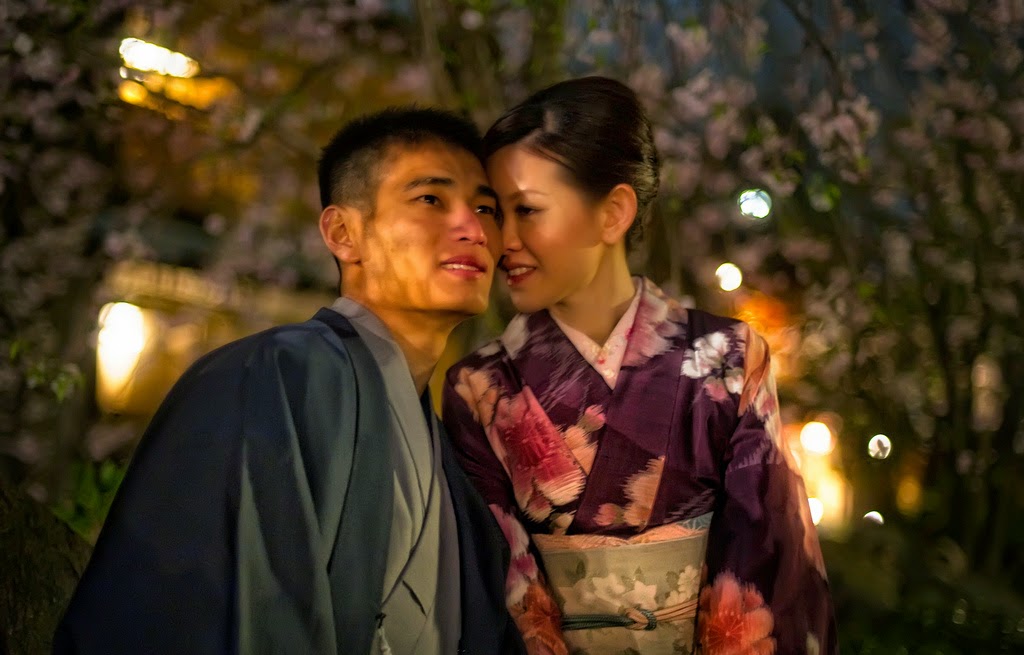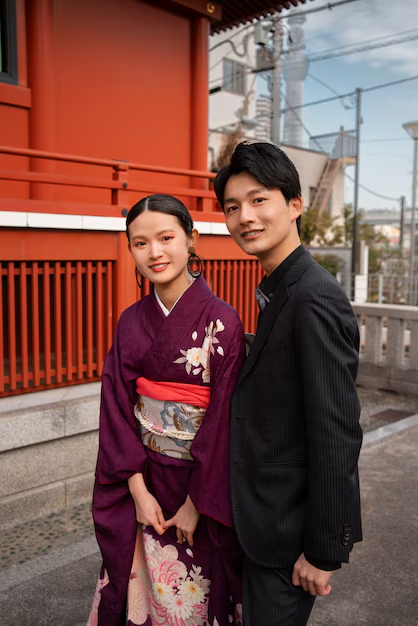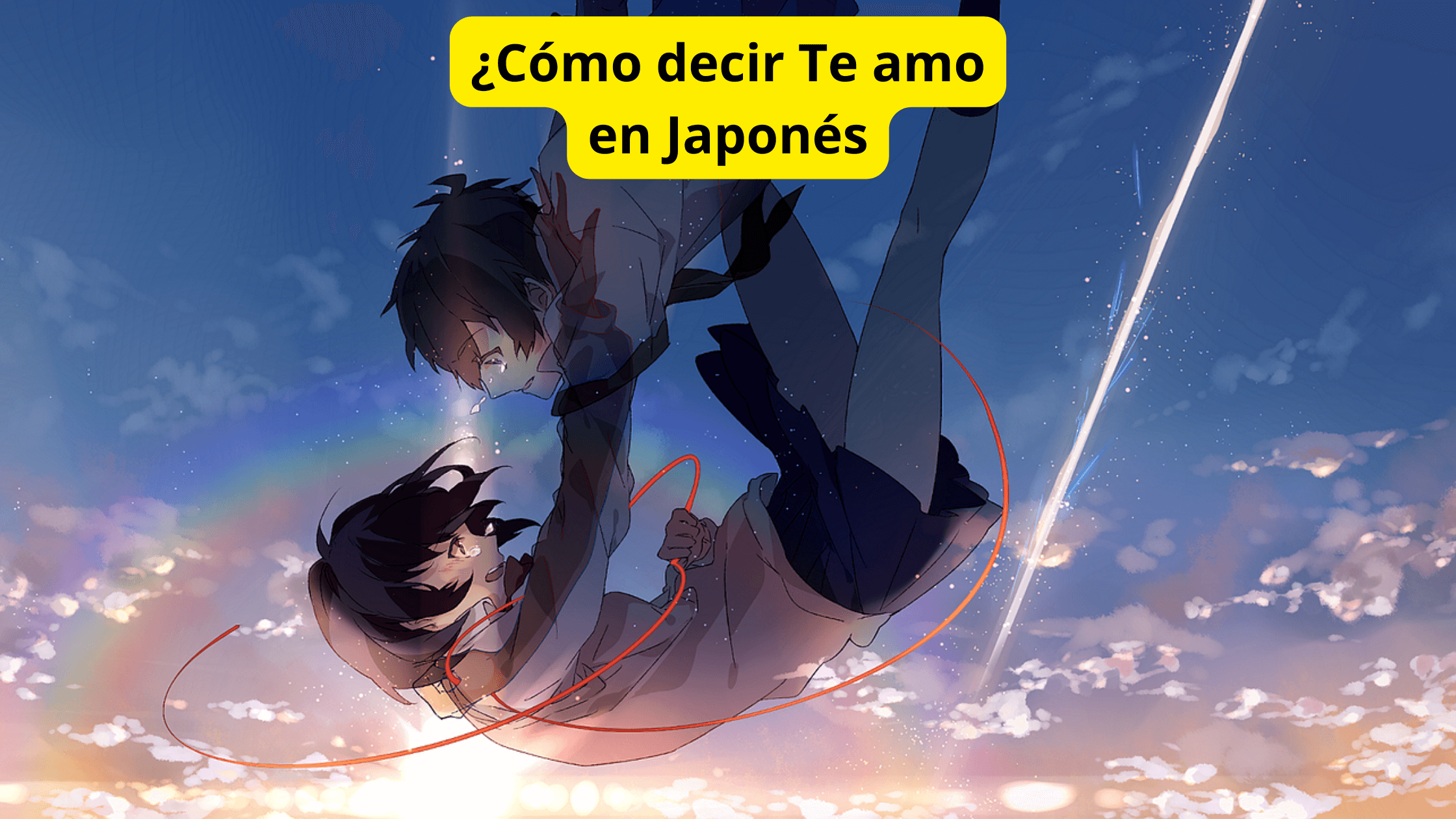How is love expressed in Japanese?
Maybe this is something you don’t know, but actually saying “I love you” to someone in person is a pretty rare and peculiar situation in Japan. Still, we’re going to show you how to say I love you in Japanese and when you can do it, in case you need to.
We’ll also show you some other phrases like “likes” below.
How do Japanese people express love?

In the history of Japan it has not been common to express feelings in a direct way such as saying “I love you” or “I like you”, this was never something that was done lightly, but they are expressions that are rarely heard, and if they are used it is done on special occasions. So much so, that 好き (suki) is not a verb but an adjective.
So, if it is so rare to show our emotions , how to say I love you in Japanese and convey our feelings to our loved ones by speaking in Japanese? How can we conquer a Japanese man or woman using the sweetest words?
Well, there are romantic phrases with extremely ideal and dreamy meanings suitable for saying I love you in this language.
For example, do you know what Koi no yokan means?
This phrase, Koi no yokan – 恋の予感, means “premonition of love.” It represents the feeling that, when we meet someone, we are going to fall hopelessly in love with that person.
It is a loving omen, an omen of love, a beautiful way to express ourselves and give strong and clear indications of our feelings.
Now, the fact that this expression can’t really be translated, didn’t stop it from being used in songs, or other motifs.
Namely:
– The musical group Deftones has an album whose title is “Koi no yokan”
– The group Anzenchitai 安全地帯 has a song with that name
– There is a band from Argentina that has recently gained more audiences and is actually touring that included Spain, whose name is “Koi no Yokan”
Here’s how to say different specific phrases in Japanese.
But first, let’s know the right way to say “I love you.”
I Love You in Japanese – suki, aishiteru - 好き、愛している

The meaning of Aishiteru means I love you in Japanese. This is a well-known phrase to express love, however, the Japanese do not actually use this word in their daily lives to manifest themselves.
They may say “tsuki ga kirei” (the moon looks beautiful) which represents the same thing, or Koishiteru which symbolizes “being in love with.”
What really happens is that the Japanese don’t shout their feelings. The best way you can show a Japanese person to fully understand what you’re feeling is to be silent and show yourself with daily actions or gestures. For them, sometimes just a “thank you” ( ありがとう – arigatō) can be worth much more than an “I love you”.
Having a partner in Japan is possible!
We help you put together a plan for you to live in Japan
I like you in Japanese – 好きです

It literally means, “I like you,” it’s something you say to a person you like a lot more than just a friend. The way to read it is Sukidesu.
In Japan this word is used to confess our love, however it is to do it in a gentle, calm way and without going to the extreme of 愛してる aishiteru, which has a much more serious and intense meaning.
These are the ways to conjugate it:
– 好きだ – Suki da – “I like” (love)
– 好きじゃない – Suki jyanai – “I don’t like it”
– 好きだった – Suki datta – “I liked it”
– 好きじゃなかった – Suki jyanakatta – “I didn’t like it”
Here are some examples of its uses in different areas.
1) スキーは私の大好きなスポーツです。
How to read
– Sukī wa watashi no daisukina supōtsudesu.
Meaning
– Skiing is my favorite sport.
2) 旅行が
How to read
– Ryokou ga sukidesu.
Meaning
– I like to travel.
3) いつでも好きな時に会いに来てください。
How to read
– Itsu sukina toki ni ai ni kite kudasai.
Meaning
– Come and see me whenever you want.
How do people in Japan express themselves when we talk about love?

First you have to understand that the Japanese maintain a balanced posture even when we talk about feelings, so you will not see them expressing themselves to the extreme, that is, you will not hear them saying things like “I like you too much” or “I completely detest this”, but they will plant themselves in a posture that moves away from the well-known “black or white” and will use more balanced nuances so as not to make anyone uncomfortable.
While it is valid to have strong preferences and dislikes in different areas of life, in Japan, in work or social environments it is necessary to avoid expressing yourself in this way to avoid making the other person feel uncomfortable. This is considered part of the mutual respect and social norms of coexistence in this country.
I want to be with you forever
ずっと一緒にいたいです
It reads Zutto isshoni itaidesu, and means “I want to always be by your side”.
Words a little strong, right? XD
The Japanese Family

First you have to understand that the Japanese maintain a balanced posture even when we talk about feelings, so you will not see them expressing themselves to the extreme, that is, you will not hear them saying things like “I like you too much” or “I completely detest this”, but they will plant themselves in a posture that moves away from the well-known “black or white” and will use more balanced nuances so as not to make anyone uncomfortable.
While it is valid to have strong preferences and dislikes in different areas of life, in Japan, in work or social environments it is necessary to avoid expressing yourself in this way to avoid making the other person feel uncomfortable. This is considered part of the mutual respect and social norms of coexistence in this country.
Be My Girlfriend in Japanese
僕の彼女になってください
It reads as Boku no kanojo ni natte kudasai and means, “be my girlfriend”.
If you are a woman you could use the word 私の彼氏になってください, read as Watashi no kareshi ni natte kudasai, which means “be my boyfriend”.
In Japan, it is also common for women to ask these questions, either out of men’s embarrassment or on the initiative of women.
Will you accept an appointment with me?

デートしよう!
It reads as Dēto shiyou! And it means “So, let’s go on a date! –
Go ahead and ask your loved one on a date, have fun, and create memorable moments together!
Is nothing forever?
If you say I love you in Japanese you can impress, remember that it is not a common fact, even, if we look in popular culture, few songs have that title.
Not bad! With this little guide we believe that you are prepared to face love situations in Japan. Remember to follow each step before launching into very intense phrases, you must handle subtlety if you want to win the heart of that special person.

Co-founder and Director of Doki Doki Japan. After learning Japanese and working in Japan for two years, he decided to turn his passion for teaching into a vision: to found his own online Japanese language school.




